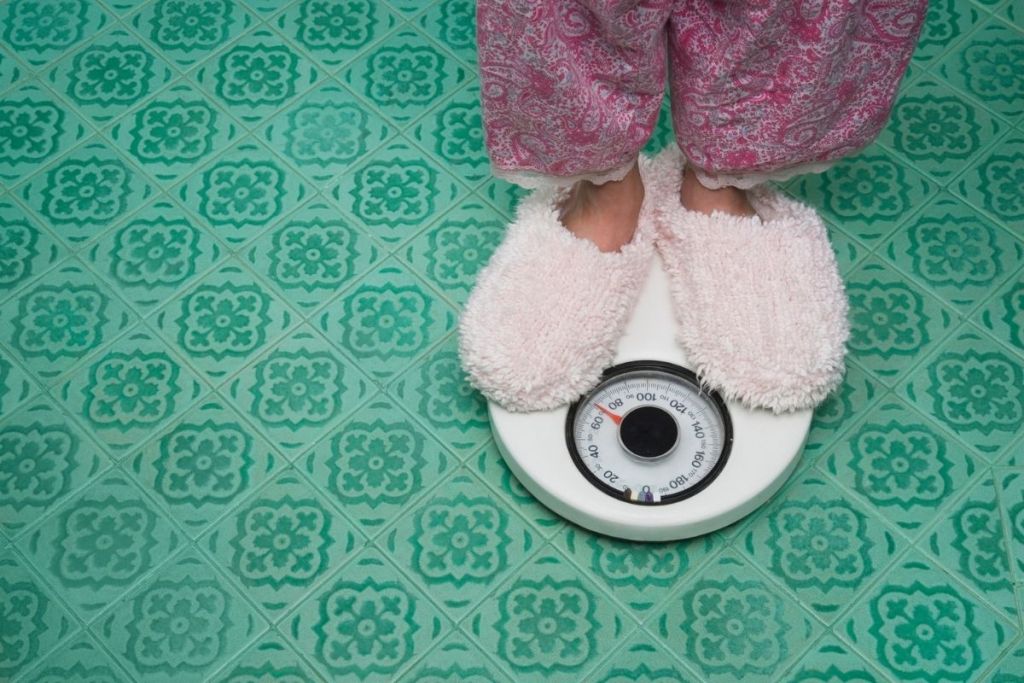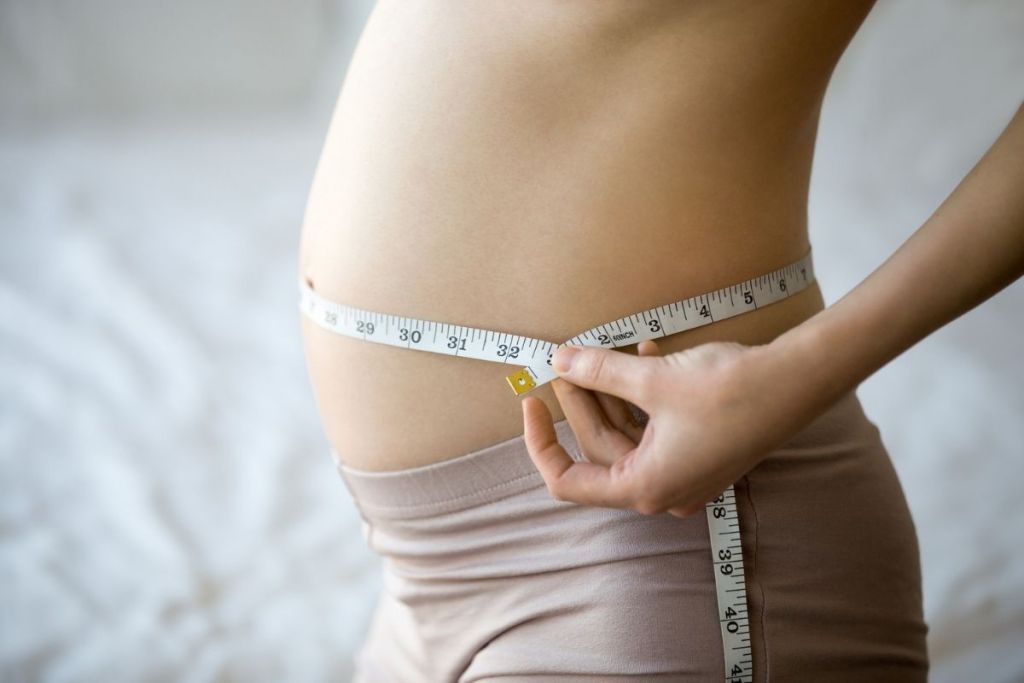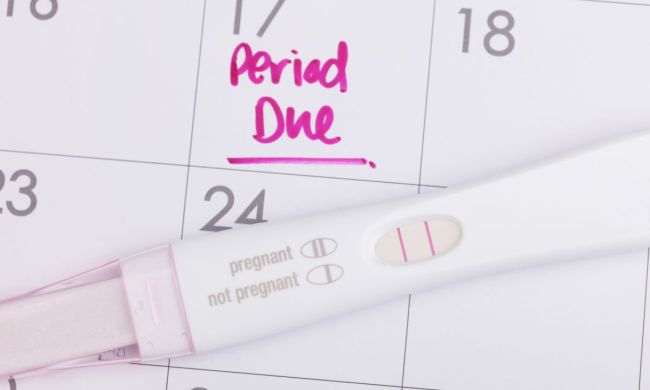The amount of weight you gain during pregnancy will depend on many factors including your pre-pregnancy weight, the number of babies you’re carrying, any medical conditions you have, and — most of all — how far all along in your pregnancy you are. The weight gained in the first trimester can be minimal, but it all depends on your health and your individual pregnancy.
While you will talk with your prenatal care team along the way, you may be wondering about your weight in-between visits. There are certain guidelines laid out for healthy and recommended weight gain for pregnancy by trimester so read below for information about what to expect in terms of first-trimester weight gain.

How much weight should I gain in the first trimester?
You don’t need to gain any weight in the first trimester. According to the American College of Obstetricians and Gynecologists (ACOG), you may gain only 1 to 5 pounds or no weight at all during the first twelve weeks of pregnancy. Usually, no extra calories are needed in the first trimester for a baby’s healthy growth. Mayo Clinic agrees, explaining that no extra calories are needed to gain one to four pounds in the first trimester.
While you are expected to gain certain amounts of weight in the second and third trimesters from the baby’s weight and other factors, you don’t need to gain any in the first trimester to be “on track”. However, 1 to 5 pounds is pretty common.
Is it normal to gain weight in the first trimester?
There is a wide range of “normal” in pregnancy, and bodies react differently to the huge changes pregnancy puts them through. You may be retaining fluids, experiencing nausea, vomiting, too tired to exercise as much, emotionally eating, or dealing with any number of additional possibilities that could cause your weight to go up or down because of your first trimester. Your weight may also fluctuate over the course of three months independent of pregnancy. Don’t worry too much if your weight goes down due to morning sickness or another reason during the first trimester; fluctuations are normal as long as you are talking to your doctor along the way and she or he agrees you are not gaining or losing weight too rapidly to cause concern.
More important than the number on the scale is to take your prenatal vitamin daily, avoid alcohol and other substances that could harm your baby’s development, eat as many healthy foods as you can, and exercise a healthy amount. Now isn’t the time to go on a crash diet to try to reach a lower weight or to stress about BMI numbers. It’s a time to focus on healthy habits and not obsess about pounds. Self-care may look like resting instead of exercising and that’s okay — listen to your body. Your baby will thank you for staying consistent without huge swings in binges or restrictions in eating and for feeding yourself nutritiously.

Why do I gain weight in the first trimester?
The fetus only weighs about one ounce at the end of the first trimester and the placenta, uterine growth, and amniotic fluid’s weight are also minimal in the early weeks, so why would you gain weight if you don’t change your eating habits? One reason may be all of the extra blood circulating in your body.
The volume of your blood can increase by 100% during pregnancy and this process begins in the early weeks of gestation. Extra blood volume alone will account for 3 to 4 pounds of your extra weight by the end of pregnancy. More will come from the placenta (1.5 pounds), increased fluid volume (2 to 3 pounds), amniotic fluid (2 pounds), a larger uterus (2 pounds), and larger breasts (1 to 3 pounds). So if you put on five pounds without eating any differently while your baby weighs only one ounce, you can see that it doesn’t have to all be fat stores.
It’s also natural to want to start eating more even if it isn’t needed yet, so some of the pounds could be from fat. There’s no way to know for sure what the pounds are from until after the baby is born and your fluid levels start returning to normal.
First-trimester weight gain
Whether you gain or lose weight during the first trimester, or gain one pound or eight, the most important thing is that your baby is receiving the vitamins and hydration he or she needs to develop and that you are staying healthy. An extra five pounds or losing five pounds instead of gaining doesn’t have to throw your whole pregnancy off track, so keep eating healthy foods, exercising, and staying positive.



